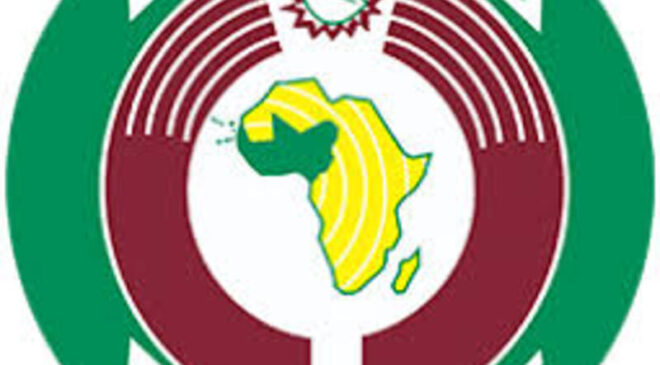
ABUJA/Nigeria: The Economic Community of West African States (ECOWAS) Commission has reaffirmed its commitment to empowering women in regional commerce, following the successful conclusion of the second meeting of its Sub-Committee on Women in Trade, held virtually on October 21 and 22, 2025, under the framework of the Regional Trade Facilitation Committee (RTFC).
The two-day engagement brought together trade and gender experts from member states to review the implementation of the Subcommittee’s three-year work plan and chart new strategies to enhance women’s participation in cross-border trade across the ECOWAS region.
In her keynote address, Sierra Leone’s Minister of Gender and Children’s Affairs, Dr. Isata Mahoi, emphasized the vital role women play in sustaining the economies of West Africa, both in the formal and informal sectors. She, however, noted that systemic challenges such as poor access to finance, limited market opportunities, and exclusion from decision-making processes continue to hinder women’s full economic potential.
Dr. Mahoi commended ECOWAS for its Gender and Trade Action Plan, which she described as a progressive step toward inclusive regional integration. She urged stakeholders to move beyond physical infrastructure development to focus on digital inclusion, entrepreneurship support, and capacity building for women-led enterprises. The Minister also highlighted Sierra Leone’s leadership through national frameworks such as the National Policy on Gender Equality and Women’s Empowerment (2020) and the National Medium-Term Development Plan (2024–2030), both of which prioritise women’s integration into value chains and promote gender-responsive investments.
Reaffirming her country’s alignment with international commitments, including the ECOWAS Gender and Trade Action Plan, the AfCFTA Protocol on Women and Youth in Trade, CEDAW, and Sustainable Development Goal (SDG) 5, Dr. Mahoi called on ECOWAS member states to translate policy dialogues into practical actions that empower women traders—particularly those in rural and informal sectors—to thrive within the regional market system.
Speaking on behalf of the ECOWAS Commissioners for Economic Affairs and Agriculture, Dr. Kalilou Sylla, and for Human Development and Social Affairs, Professor Fatou Sow Sarr, the Director of Trade, Mr. Kolawole Sofola, reiterated the Commission’s dedication to building a gender-responsive trade environment. He explained that the Sub-Committee on Women in Trade was established to ensure that men and women benefit equally from regional economic integration, consistent with Pillar V of the ECOWAS Vision 2050, which promotes inclusiveness and equitable growth.
Mr. Sofola applauded the milestones achieved since the Subcommittee’s inaugural session, particularly the formulation of a three-year work plan aimed at addressing critical challenges faced by women traders—such as poor border infrastructure, cumbersome customs processes, and inadequate awareness of trade rules. He encouraged member states to integrate these priorities into their national policies and ensure adequate budgetary provisions for implementation.
Experts at the meeting reviewed progress on key initiatives, including the third edition of the awareness campaign for small-scale cross-border traders along the Abidjan–Lagos corridor, the ECOWAS–ECOBANK women empowerment programme, and digital skills training for rural women entrepreneurs. The gathering also provided an opportunity to strengthen coordination among regional actors, align programmes, and promote best practices in women’s economic empowerment.
At the end of the session, participants issued a series of recommendations, urging stronger advocacy for increased funding of women’s economic initiatives, improved representation of women in border governance structures to address harassment and gender-based violence, and the expansion of existing ECOWAS programmes to all member states to deepen inclusiveness and regional economic development.
The meeting reaffirmed ECOWAS’ growing commitment to ensuring that women, as vital drivers of trade and integration — are not left behind in the quest for a prosperous and equitable West Africa.
